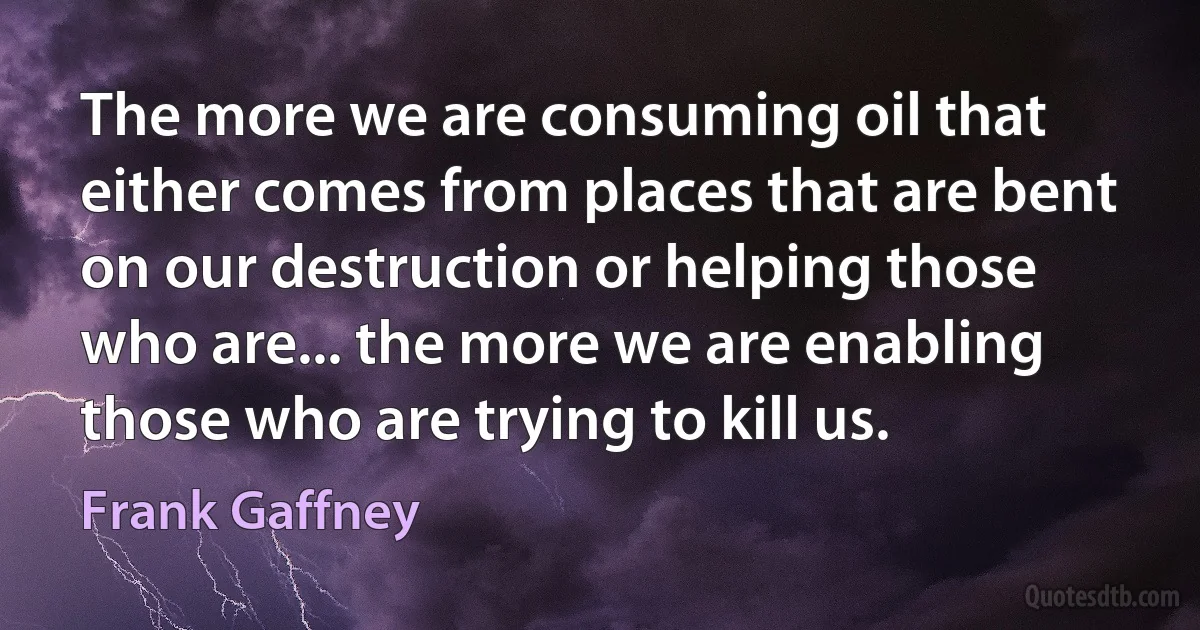Enabling Quotes - page 3
ALL PRECEDENTS ARE UNDER THE CONTROUL OF THE PRINCIPLES OF THE LAW ... No Acts of Parliament can establish such a writ [writ of assistance enabling British search of homes for no reason]: ... it would be void, "AN ACT AGAINST THE CONSTITUTION IS VOID." Vid. Viner. But ... special writs may be granted on oath and probable suspicion.

James Otis
The great harm done by bourgeois society, as we have already mentioned, is not only that capitalists seize a large share of the profits of each industrial and commercial enterprise, thus enabling them to live without working, but that all reduction has taken a wrong direction, as it is not carried on with a view to securing well-being to all. For this reason we condemn it.

Peter Kropotkin
Electric current, after passing into the earth travels to the diametrically opposite region of the same and rebounding from there, returns to its point of departure with virtually undiminished force. The outgoing and returning currents clash and form nodes and loops similar to those observable on a vibrating cord. To traverse the entire distance of about twenty-five thousand miles, equal to the circumference of the globe, the current requires a certain time interval, which I have approximately ascertained. In yielding this knowledge, nature has revealed one of its most precious secrets, of inestimable consequence to man. So astounding are the facts in this connection, that it would seem as though the Creator, himself, had electrically designed this planet just for the purpose of enabling us to achieve wonders which, before my discovery, could not have been conceived by the wildest imagination.

Nikola Tesla
The advent of the Computer age has stimulated a rapid expansion in the use of quantitative techniques for the analysis of economic, urban, social, biological and other types of systems in which it is the animate rather than in dominant role. At present, most of the techniques employed for the analysis of humanistic, i.e., human centred systems are adaptations of the methods that have been developed over a long period of time for dealing with mechanistic systems, i.e., physical systems governed in the main by-the laws of mechanics, electromagnetism, and thermodynamics. The remarkable successes of these methods in unraveling the secrets of nature and enabling us to build better and better machines have inspired a widely held belief that the same or similar techniques can be applied with comparable effectiveness to the analysis of humanistic systems.

Lotfi A. Zadeh
The main lesson for Europe and the world is clear: as a matter of urgency, globalization must be fundamentally re-oriented. The main challenges of our times are the rise in inequality and global warming. We must therefore implement international treaties enabling us to respond to these challenges and to promote a model for fair and sustainable development. Agreements of a new type can, if necessary, include measures aimed at facilitating these exchanges. But the question of liberalizing trade should no longer be the main focus. Trade must once again become a means in the service of higher ends. It never should have become anything other than that.

Thomas Piketty
there is a great choice that awaits us every day: whether we go around carving holes in others because we have been so painfully carved ourselves, or whether we let spirit play its song through our tender experience, enabling us to listen, as well, to the miraculous music coming through others.

Mark Nepo
Asia is one. The Himalayas divide, only to accentuate, two mighty civilisations, the Chinese with its communism of Confucius, and the Indian with its individualism of the Vedas. But not even the snowy barriers can interrupt for one moment that broad expanse of love for the Ultimate and Universal, which is the common thought-inheritance of every Asiatic race, enabling them to produce all the great religions of the world, and distinguishing them from those maritime peoples of the Mediterranean and the Baltic, who love to dwell on the Particular, and to search out the means, not the end, of life.

Kakuzo Okakura
The Enabling Law permitted the government to pass budgets and promulgate laws, including those altering the constitution, for four years without parliamentary approval. In democracies, constitutional amendments are especially solemn moments; here they were easier than changing the traffic regulations. None of the guarantees Hitler extended to the Churches or the judiciary in his address to the Reichstag amounted to a hill of beans.

Michael Burleigh
[T]here is a path of ascent, requiring and enabling us to undergo a transformation of both society and the self, and rewarding us with an incomparable good. The incomparable good is a greater share of the attributes of the divine, or eternal life, or a greater life, with higher powers, making us more godlike.

Roberto Mangabeira Unger
Should the United States seek so-called energy independence in an elusive effort to insulate this country from the impact of world events on the economy, or should Americans pursue the path of international engagement, seeking ways to better compete within the global market for energy? Like the Council's founders, I believe we must choose the course of greater international engagement ... The central reality is this: The global free market for energy provides the most effective means of achieving U. S. energy security by promoting resource development, enabling diversification, multiplying our supply channels, encouraging efficiency, and spurring innovation.

Rex Tillerson
The ‘Digital India' initiative is one of the key measures to make government transparent, responsive and citizen friendly. The objective is to create a digitally empowered society and infuse technology into government, healthcare and education. From creating infrastructure to services, from manufacture of products to human resource development, from enabling citizens to promoting digital literacy, ‘Digital India' aims to impact all aspects of life in India.

Sushma Swaraj
Whether it's by helping us search for health-related information, connecting us with doctors through online portals, or enabling us to store and retrieve our medical records online, the Internet is starting to show the promise it has to transform the way people interact with and improve their own health and wellness.

Dean Ornish
If the court strikes down the Defense of Marriage Act, is that a 'liberal' result enabling gay couples married in states where gay marriage is legal to enjoy the same economic advantages that federal laws now grant to straight couples? Or is it a 'conservative' ruling, limiting the federal government's ability to override state power?

Jeff Greenfield



